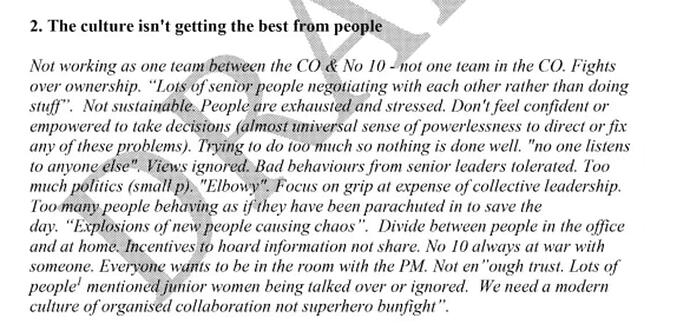The next witness is Sir Chris Wormald, permanent secretary at the Department of Health and Social Care. Wormald has submitted four statements to the inquiry running to hundreds of pages.
I wonder how many of those pages refer to Hancock … 
Wormald does not accept Hancock lied during Covid, but he says he challenged him over repeated claims he ‘over-promised’. Hancock’s leadership style involved setting challenges to get the system to deliver, he says. He was always clear that he was doing it for a positive reason. So setting a very aspirational target, not necessarily expecting to hit it, but to galvanise the system to do more.
Wormald’s defence of Hancock is robust and positive … 
He says he personally did not come across cases where Hancock said things that were actually untrue. He says Hancock will be “surprised” at how many people were saying he said things that were not untrue. He knew Dominic Cummings thought he did not tell the truth, but he is likely to be surprised Helen MacNamara thought that. Wormald says he personally was surprised to hear MacNamara say that, because he had not heard that from her before.
Perhaps because he’s, seemingly, an admirer of Hancock … 
Wormald rejects claim DHSC was chaotic and dysfunctional during Covid
Sir Patrick Vallance, the chief scientific adviser, wrote in his diaries about the “chaos, operational mess, inefficiency, lack of grip in the DHSC”. Vallance also described the department as “ungovernable and a web of competing parts”.
Asked if he thought DHSC was chaotic or dysfunctional, Wormald said he did not agree at all.
Wormald seems to be evading all responsibility by claiming “ignorance”, i.e. there was a lack of knowledge about any pending pandemic.
Wormald says poor relations at top of government did affect its ‘efficiency’ during early days of Covid
Keith asks what the relationship was like with No 10 and the Cabinet Office in late February.
Wormald says, at officials level, relations were good. At the political level, they were “more up and down”, he says.
He says he does not think, and has never thought, that core decisions about what lockdown measures to implement were affected by these relationship issues.
Was Wormald living on a different planet at the time … 


